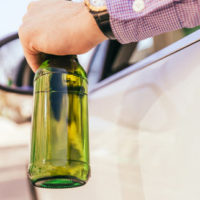Ignition Interlock Devices in Virginia

The Commonwealth of Virginia features strict rules concerning the criminal offense of driving under the influence (DUI). Recognizing the dangerousness of drunk driving, Virginia enacted harsh penalties for DUI, even for first-time offenders. Just one DUI conviction can result in the installation of an ignition interlock device as well as the imposition of educational or treatment programs.
What is an Ignition Interlock Device in Virginia?
As established in Code of Virginia 18.2-270.1, an ignition interlock device is a mechanism that helps prevent DUI offenders from driving drunk. Essentially, these devices are installed on the ignition system of a DUI offender’s vehicle. In order to start the vehicle, the DUI offender must register a valid test of their blood-alcohol concentration (BAC). If the DUI offender registers a BAC above 0.02, the vehicle will not start.
Furthermore, ignition interlock devices in Virginia are required to perform rolling retests. While the vehicle is in operation, the ignition interlock device will randomly alert the driver to perform additional tests. If the driver fails to complete the test — or registers a BAC above 0.02 — then the ignition interlock device will trigger the vehicle’s horn and lights.
Every time an ignition interlock device records a BAC test, the system also takes a picture of the driver. Then the system stores the results of the test along with the picture in an electronic log.
What is the Alcohol Safety Action Program in Virginia?
The Alcohol Safety Action Program (ASAP) is an educational and treatment program for DUI offenders in Virginia. After receiving a DUI conviction, the offender must complete all ASAP requirements to apply for driver’s license reinstatement. The general requirement for the educational courses is 20 hours over the course of a 10-week timeframe.
Specifically in terms of ignition interlock devices, ASAP oversees the administration of legal requirements. DUI offenders must provide proof of ignition interlock installation to ASAP. Additionally, ASAP personnel review the electronic logs of ignition interlock test results, ensuring that offenders meet all court-ordered requirements.
What are the Penalties for Violating Ignition Interlock Requirements in Virginia?
If ASAP personnel review the electronic logs of an ignition interlock device and detect a violation, the penalties can be severe.
- First violation results in revocation of driving privileges for 12 months; and
- Second or subsequent violation results in revocation of driving privileges for 36 months.
There is another important detail to consider here. Revocation of driving privileges for violating ignition interlock requirements removes the possibility of a restricted driving permit. This means that the DUI offender is not able to drive for any reason during the revocation period.
Let Us Help You Today
Whether you or a loved one are facing charges for DUI or criminal offenses, it is prudent to engage the services of an accomplished criminal defense lawyer. Don’t hesitate to contact Simms Showers LLP, servicing Leesburg, Winchester, Fairfax, and Manassas,for professional help.
Resource:
law.lis.virginia.gov/vacode/title18.2/chapter7/section18.2-270.1/
